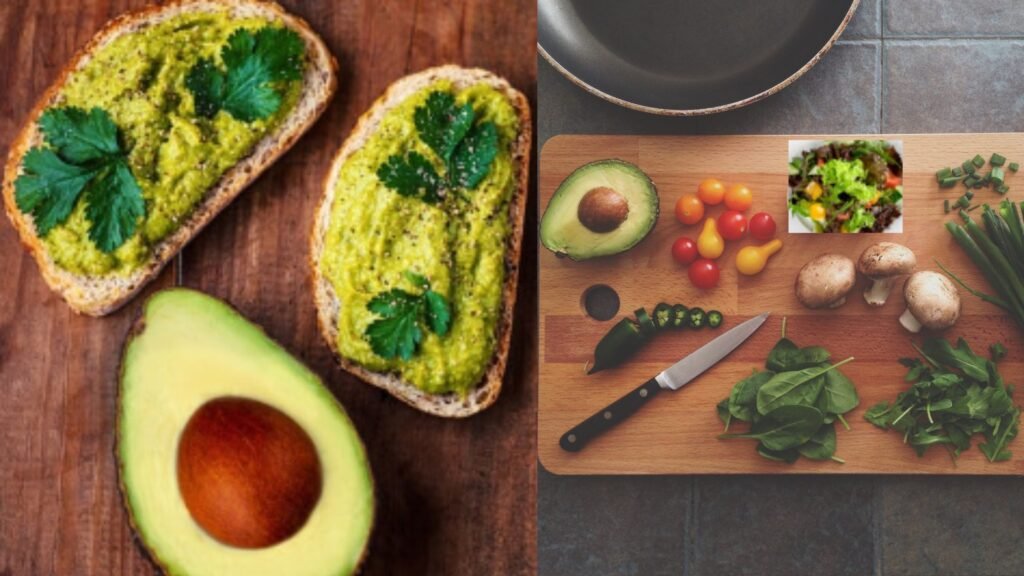Are you thinking about going vegan but not sure where to start? A one week vegan meal plan is a great way to transition into a plant-based lifestyle. Not only is it good for your health, but it’s also better for the environment and animal welfare.
Here is a one week vegan meal plan to help you get started:
Monday:
- Breakfast: Oatmeal with almond milk, berries, and sliced almonds
- Lunch: Hummus and veggie sandwich on whole grain bread with an apple
- Dinner: Vegan lentil and vegetable soup with a side salad
Tuesday:
- Breakfast: Vegan protein smoothie with banana, almond milk, peanut butter, and spinach
- Lunch: Quinoa salad with black beans, roasted veggies, and avocado
- Dinner: Vegan chili with cornbread
Wednesday:
- Breakfast: Vegan tofu scramble with veggies and whole-grain toast
- Lunch: Vegan chickpea salad with whole grain crackers
- Dinner: Vegan mushroom stroganoff with green beans
Thursday:
- Breakfast: Vegan protein smoothie with mixed berries, almond milk, and chia seeds
- Lunch: Vegan roasted vegetable and hummus wrap with fruit
- Dinner: Vegan stuffed peppers with quinoa and veggies
Friday:
- Breakfast: Vegan breakfast burrito with tofu scramble, black beans, and salsa
- Lunch: Vegan lentil soup with whole-grain bread
- Dinner: Vegan lasagna with salad
Saturday:
- Breakfast: Vegan pancakes with berries and maple syrup
- Lunch: Vegan veggie burger with sweet potato fries
- Dinner: Vegan stir-fry with tofu, veggies, and rice
Sunday:
- Breakfast: Vegan tofu omelet with veggies and whole grain toast
- Lunch: Vegan lentil and vegetable soup with a side salad
- Dinner: Vegan spaghetti with marinara sauce and garlic bread
Adopting a vegan diet can be an incredibly healthy and sustainable lifestyle choice, but it can also be intimidating for those who are used to eating meat and dairy products. The good news is that many delicious and nutritious plant-based meals can be enjoyed on a vegan diet.
Transitioning to a vegan diet can seem daunting, especially regarding meal planning. However, with some effort, it’s easy to create delicious and nutritious vegan meals that can help you feel your best. That’s why we’ve put together a one-week vegan meal plan to help you get started.
This meal plan is packed with delicious, healthy vegan meals that are easy to make and will keep you satisfied all week.
To help get you started, here is an another one week vegan meal plan that is both simple and satisfying.
Day 1:
- Breakfast: Overnight oats made with rolled oats, almond milk, and chia seeds and topped with fresh fruit and a sprinkle of cinnamon.
- Lunch: Tofu and vegetable stir-fry with brown rice.
- Dinner: Vegan lentil soup with a side of roasted sweet potatoes.
Day 2:
- Breakfast: Vegan protein smoothie with banana, berries, almond milk, and a scoop of vegan protein powder.
- Lunch: Chickpea salad with mixed greens, tomatoes, cucumber, and a lemon tahini dressing.
- Dinner: Vegan chili with avocado and whole wheat bread.
Day 3:
- Breakfast: Vegan breakfast sandwich with a whole grain English muffin, vegan sausage, tofu scramble, and sliced avocado.
- Lunch: Vegan sushi rolls with avocado, cucumber, carrot, and pickled ginger.
- Dinner: Vegan lasagna made with tofu ricotta, spinach, and marinara sauce.
Day 4:
- Breakfast: Vegan banana pancakes with maple syrup and fresh berries.
- Lunch: Vegan quinoa salad with roasted vegetables and a balsamic vinaigrette dressing.
- Dinner: Vegan black bean and sweet potato tacos with avocado and salsa.
Day 5:
Breakfast: Vegan Berry Smoothie Bowl – This refreshing smoothie bowl is topped with fresh berries and granola for a healthy and delicious breakfast.
Lunch: Vegan Sweet Potato and Black Bean Bowl – This easy bowl is filled with sweet potatoes, black beans, and veggies for a healthy and filling lunch.
Dinner: Vegan Cauliflower Buffalo Wings – These spicy and crispy cauliflower wings are a delicious and healthy alternative to traditional ones.
Day 6:
Breakfast: Vegan Breakfast Burrito – This burrito is filled with tofu scramble, veggies, and salsa for a delicious and satisfying breakfast.
Lunch: Vegan Caesar Salad – This classic salad is made with a creamy cashew dressing for a healthy and satisfying lunch.
Dinner: Vegan Chili – This hearty and comforting chili is made with beans and veggies for a satisfying and delicious dinner.
Day 7:
Breakfast: Vegan French Toast – This classic breakfast dish is made with almond milk and topped with fresh fruit for a delicious and indulgent breakfast.
Lunch: Vegan BBQ Tofu Sandwich – This easy sandwich is filled with BBQ tofu, fresh veggies, and avocado for a filling and satisfying lunch.
Dinner: Vegan Shepherd’s Pie – This comforting dish is made with lentils, veggies, and mashed potatoes for a hearty and delicious dinner.
Snacks:
- Fresh fruit
- Hummus and veggies
- Vegan energy bars
This one-week vegan meal plan is just a starting point. There are countless delicious and healthy vegan meals out there to explore.
Must Read Avoid eating food when losing your weight
How to Transition to a Plant-Based Diet

Transitioning to a plant-based diet can be a daunting task, especially if you are used to eating meat and dairy products on a regular basis. However, with a little bit of planning and preparation, you can make the transition to a plant-based diet successfully. In this blog, we will discuss some tips to help you transition to a plant-based diet.
- Start Slowly
One of the biggest mistakes people make when transitioning to a plant-based diet is trying to change everything at once. This can lead to feeling overwhelmed and discouraged. Instead, start by incorporating more plant-based meals into your diet slowly. Begin by replacing one meal a day with a plant-based meal and gradually increase it from there.
- Learn About Plant-Based Foods
It is essential to educate yourself on plant-based foods and what they can offer your body. Start by researching plant-based recipes and experimenting with new ingredients. Learning about the health benefits of plant-based foods can also motivate you to make the switch.
- Make Substitutions
Start making substitutions for meat and dairy products. Instead of using cow’s milk, try using almond or soy milk. Instead of using beef, try using lentils or mushrooms. There are plenty of alternatives that are just as delicious and healthy.
- Meal Prep
Meal prepping is an excellent way to make sure you have healthy plant-based meals ready to eat when you need them. Spend some time each week preparing meals and snacks for the upcoming week. This can also help you avoid grabbing unhealthy options when you’re on-the-go.
- Don’t Forget Protein
One of the biggest concerns people have when transitioning to a plant-based diet is getting enough protein. However, there are plenty of plant-based protein sources, such as lentils, chickpeas, tofu, and quinoa. Incorporating these protein sources into your meals will help you meet your daily protein needs.
Read more: Best food to lose your weight
Beginner Tips for Eating a Plant-Based Diet
Here are some beginner tips to help you get started:
- Start slow: You can go all in from day one. Try incorporating plant-based meals into your diet a few times a week and gradually increase the frequency.
- Experiment with new foods: There are so many delicious plant-based foods to try, so don’t be afraid to experiment. Try fresh fruits, vegetables, grains, legumes, and nuts.
- Focus on nutrient-dense foods: When you’re eating a plant-based diet, it’s essential to ensure you get all the nutrients your body needs. Focus on foods high in vitamins, minerals, protein, and healthy fats, such as leafy greens, whole grains, nuts, seeds, legumes, and tofu.
- Use meat substitutes: If you’re used to eating meat, it can be helpful to use meat substitutes to help you transition to a plant-based diet. Look for products like tofu, tempeh, seitan, or plant-based meat alternatives.
- Plan your meals: Planning your meals can help you ensure you get all the nutrients you need and prevent you from reaching for less healthy options. Make a weekly meal plan and stick to it.
- Learn how to cook: Cooking your plant-based meals is not only healthier, but it’s also more cost-effective. Plenty of plant-based recipes are available online, so start experimenting in the kitchen.
- Get support: It can be helpful to have support from others following a plant-based diet. Join online forums, attend local meetups, or find a plant-based coach to help you.
Remember, eating a plant-based diet is not an all-or-nothing approach. Every plant-based meal you eat is a step in the right direction toward a healthier and more sustainable lifestyle.

